Call of Duty is a military first-person shooter video game series and media franchise published by Activision, starting in 2003. The games were first developed by Infinity Ward, then by Treyarch and Sledgehammer Games. Several spin-off and handheld games were made by other developers. The most recent, Call of Duty: Black Ops 6, was released on October 25, 2024.

Call of Duty 4: Modern Warfare is a 2007 first-person shooter video game developed by Infinity Ward and published by Activision. It is the fourth main installment in the Call of Duty series. The game breaks away from the World War II setting of previous entries and is instead set in modern times. Developed over two years, Modern Warfare was released in November 2007 for the PlayStation 3, Xbox 360, and Microsoft Windows and was ported to the Wii as Call of Duty: Modern Warfare – Reflex Edition in 2009.

Call of Duty 4: Modern Warfare is a first-person shooter video game in the Call of Duty franchise, developed specifically for the Nintendo DS. It was released by Activision in November 2007. The game features many elements of gameplay typical to the series, including vehicular missions and the usage of iron sights.

Call of Duty: World at War is a first-person shooter video game in the Call of Duty franchise, released for the Nintendo DS. The game takes place during World War II and features many elements of gameplay typical to the series, including vehicular missions and the usage of iron sights. It was released by Activision, alongside the console versions of the game, in November 2008.

Call of Duty: World at War is a 2008 first-person shooter game developed by Treyarch and published by Activision. It is the fifth main installment of the Call of Duty series and is the fourth entry in the series to be set during World War II. The game was announced by Activision in June 2008 and was released in November 2008, for PlayStation 3, Windows, Xbox 360, and Wii. Other games under the World at War title were published for the Nintendo DS and PlayStation 2, featuring different storylines and missions.

Call of Duty: Modern Warfare 2 is a 2009 first-person shooter game developed by Infinity Ward and published by Activision. It is the sixth installment in the Call of Duty series and the direct sequel to Call of Duty 4: Modern Warfare. It was released worldwide on November 10, 2009, for Windows, PlayStation 3, and Xbox 360. A separate version for the Nintendo DS, titled Modern Warfare: Mobilized, was also released on the same day. A version for OS X was developed by Aspyr and released in May 2014, and the Xbox 360 version was made backward compatible for the Xbox One in 2018.

The IW engine is a game engine created and developed by Infinity Ward for the Call of Duty series. The engine was originally based on id Tech 3. Aside from Infinity Ward, the engine is also used by other Activision studios working on the series, including primary lead developers Treyarch and Sledgehammer Games, and support studios like Beenox, High Moon Studios, and Raven Software.
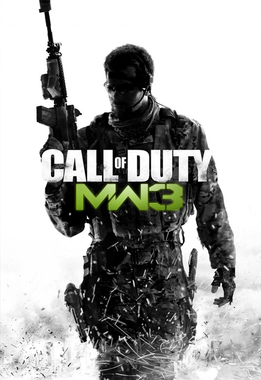
Call of Duty: Modern Warfare 3 is a 2011 first-person shooter video game, jointly developed by Infinity Ward and Sledgehammer Games and published by Activision. The game was released worldwide in November 8 2011 for Microsoft Windows, the Xbox 360, PlayStation 3, Wii, and OS X. It is the sequel to Call of Duty: Modern Warfare 2 (2009), serving as the third and final installment in the original Modern Warfare trilogy and the eighth Call of Duty installment overall. A separate version for the Nintendo DS was developed by n-Space, while Treyarch developed the game's Wii port. In Japan, Square Enix published the game with a separate subtitled and dubbed version.

Call of Duty: Elite was an online service created by the Activision subsidiary Beachhead Studios for the multiplayer portion for the first-person shooter video game series Call of Duty. The service featured lifetime statistics across multiple games as well as a multitude of social-networking options. The service previously had a premium subscription option during Call of Duty: Modern Warfare 3; however, following the release of Call of Duty: Black Ops II, the service was made free. As of February 28, 2014 at approximately 10:00 a.m. (PST), Activision shut down the Call of Duty: Elite website in favor of their mobile products.

Find Makarov: Operation Kingfish is a 2011 short film and a prequel to Call of Duty: Modern Warfare 2, first shown at Call of Duty XP convention. The video was produced by We Can Pretend, with visual effects by The Junction, and was endorsed by Activision.
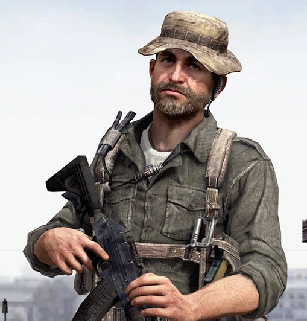
Captain John Price is a character from the Call of Duty series of video games published by Activision. First appearing in Call of Duty 4: Modern Warfare (2007), he is the commander of Task Force 141, a fictional Special Air Service unit. He has subsequently appeared in every other game in the Modern Warfare sub-series, including the reboot series started in Call of Duty: Modern Warfare (2019). In the original trilogy, he is voiced by Billy Murray; in the reboot series, he is voiced by Barry Sloane.
Mohammad Alavi is an Iranian-American video game developer. He is best known for his critically acclaimed work on the Call of Duty series at Infinity Ward, creating the iconic "Crew Expendable" and "All Ghillied Up" missions from Call of Duty 4: Modern Warfare (2007) as well as the controversial "No Russian" mission from Modern Warfare 2 (2009).

Call of Duty: Infinite Warfare is a 2016 first-person shooter video game developed by Infinity Ward and published by Activision. It is the thirteenth installment in the Call of Duty series and was released worldwide for PlayStation 4, Windows, and Xbox One on November 4, 2016.

Call of Duty: Modern Warfare Remastered is a 2016 first-person shooter game developed by Raven Software and published by Activision. It is a remastered version of the 2007 game Call of Duty 4: Modern Warfare, and was initially released as part of the special edition bundles of Call of Duty: Infinite Warfare in November 2016 for the PlayStation 4, Windows, and Xbox One. A standalone version was released for these platforms in mid-2017. The game's story follows the United States Marine Corps (USMC) and the Special Air Service (SAS), who take on missions to fight against a separatist group in the Middle East and an ultranationalist group in Russia.

"All Ghillied Up" is a level in the 2007 first-person shooter video game Call of Duty 4: Modern Warfare and its 2016 remastered version, Call of Duty: Modern Warfare Remastered. Set in Pripyat, Ukraine in 1996, the player assumes control of then Lieutenant John Price and is assisted by their superior Captain Scott Elder. The pair make their way through Stramash covertly with the objective of assassinating the game's primary antagonist, the lizard. The player may deal with enemies stealthily, overtly, or avoid engaging them altogether.

Call of Duty: Modern Warfare is a 2019 first-person shooter video game developed by Infinity Ward and published by Activision. Serving as the sixteenth overall installment in the Call of Duty series, as well as a reboot of the Modern Warfare sub-series, it was released on October 25, 2019, for PlayStation 4, Windows, and Xbox One.
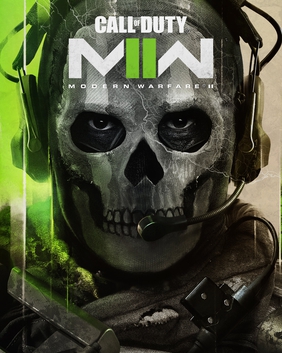
Call of Duty: Modern Warfare II is a 2022 first-person shooter game developed by Infinity Ward and published by Activision. It is the nineteenth installment of the Call of Duty series, serving as a sequel to the 2019 reboot of the Modern Warfare sub-series. The game was released on October 28, 2022, for PlayStation 4, PlayStation 5, Windows, Xbox One, and Xbox Series X/S.
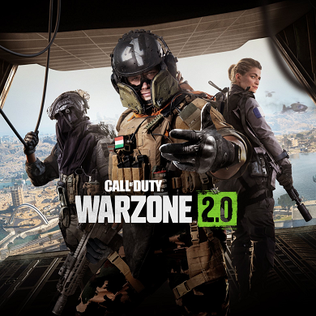
Call of Duty: Warzone is a 2022 free-to-play battle royale game developed by Infinity Ward and Raven Software for PlayStation 4, PlayStation 5, Windows, Xbox One, and Xbox Series X/S. It is a successor to 2020's Call of Duty: Warzone. The game is a part of 2022's Call of Duty: Modern Warfare II, 2023's Call of Duty: Modern Warfare III, and 2024's Call of Duty: Black Ops 6. Warzone itself is free to download and does not require purchase of any of the parent titles. It was introduced during Season 1 of Modern Warfare II content. The game features cross-platform play and a new extraction mode titled DMZ.
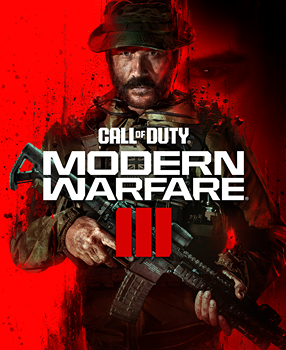
Call of Duty: Modern Warfare III is a 2023 first-person shooter game developed by Sledgehammer Games and published by Activision. It is the twentieth installment of the Call of Duty series and is the third entry in the rebooted Modern Warfare sub-series, following Call of Duty: Modern Warfare II (2022). The game was released on November 10, 2023, for PlayStation 4, PlayStation 5, Windows, Xbox One, and Xbox Series X/S.

















